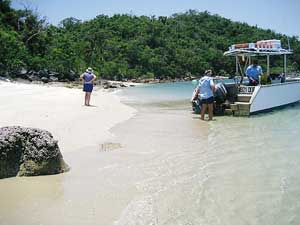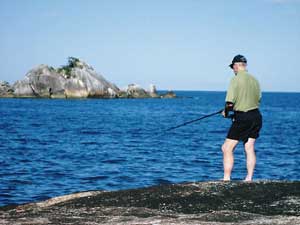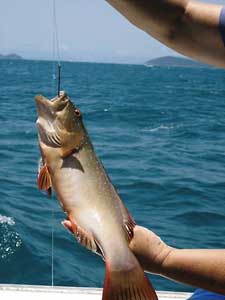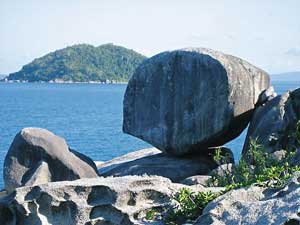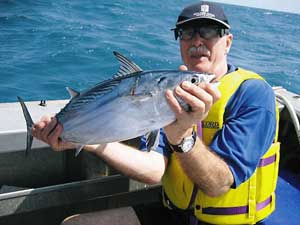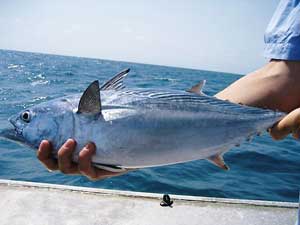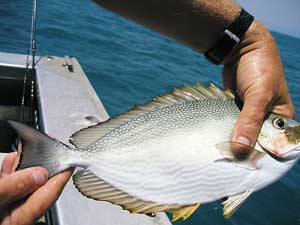| PROFESSOR BARRIE RICKARDS | |
Professor Barrie Rickards is President of the Specialist Anglers Association (SAA) and President of the Lure Angling Society (LAS), as well as a very experienced and successful specialist angler with a considerable tally of big fish to his credit. He is author of several fishing books, including the classic work ‘Fishing For Big Pike’, co-authored with the late Ray Webb and only recently his first novel, ‘Fishers On The Green Roads’ was published. He has been an angling writer in newspapers and magazines for nigh on four decades. Barrie takes a keen interest in angling politics. Away from angling Barrie is a Professor in Palaeontology at the University of Cambridge, a Fellow of Emmanuel College and a curator of the Sedgwick Museum of Geology. |
The BBC – Anglers avoiding environmental issues?I’VE BEEN DOING a little foreign travelling and fishing lately, some success, some failure, of which more a little later. Firstly I want to discuss something which seems to have appalled a lot of people, myself included. Not so long ago, on BBC’s Radio 4 morning programme with John Humphries, it was announced that an environmental lobby, including the A.C.A, the RSPB and others, would be approaching the government over water quality matters. So far so good, but the BBC spokeswoman then went on to say that anglers had steered clear of environmental issues in the past, but had decided to get involved on this occasion.What a ludicrous and idiotic remark. Is the BBC not aware of what the ACA is? Is it not aware that for most of the last century it was the lone organisation fighting pollution, unaided by the RSPB or anyone else? Is it not aware of the Pure Rivers Society and its early work? Is it not aware that the ACA continues to be the leading prosecutor of polluters even though, latterly, it has been joined by the Environment Agency? Is it not aware that for at least 50 years angling bodies, angling clubs, have been the only bodies tackling pollution, pointing out the errors of abstraction, pointing out the errors of silly drainage systems which exacerbate flooding? In short, does the BBC know anything about angling at all? These are not rhetorical questions. Given the complete idiocy which seems to stem from the BBC whenever something crops up about angling I would like to see a BBC person respond directly to FishingMagic.com and actually answer the above questions. Did you all enjoy “The Accidental Angler” on BBC 2? It shows what we all know, that you can show angling on TV, and that it isn’t boring. I watched it with several non-anglers and they all enjoyed it. Of course, it was a bit gimmicky, as most things are these days, and I guess the BBC took it as a ready-made travel programme which, largely, it was. Heavens, they’ll be taking real angling next.
Foreign Travelling and Fishing Now to my travels. I had to do some work in New South Wales (yes, I know, it’s hard for some). We went via Sydney, where we have some friends with a house on the waterfront of Sydney Harbour. Naturally we went out for an hour’s trolling (with handlines!). Everybody fishes in Australia and handline fishing is allowed, with certain restrictions. That was the first and only Oz failure. Later we had a week’s holiday on Bedarra Island on the Great Barrier Reef, after flying from Sydney to Cairns and overnighting with yet more friends. Bedarra island is a small, highly luxurious “hotel” on a small island on a granite knoll in the reef, surrounded by white beaches overlooked by coconut palms, jungle, and your own villa. Look it up on the website. It will bend your mind a a little. After a week working in the bush near Orange NSW, we reckoned we deserved a bit of sun.
There’s lots of fishing, and included in the deal is a small boat with canopy, big outboard, all the tackle you need, plus sumptuous packed lunch if you need one. Or you can fish from the bank, casting over coral growths, sandy bays, boulder beds and so on. All in crystal clear water, with wall-to wall sunshine. Or you can hire a “deep sea” trip out to the out fringes of the GBR (This is the only thing that is an extra charge everything else is included and, indeed, it is a no cash island). We did a bit of everything, as well as swimming, snorkelling, sunbathing, jungle walking and so on.
Fishing just offshore, on our first effort, I had a nice black trevally on a moderate diving crankbait, trolled at fairly fast speed. But the real way of taking trevally, especially the giant trevally, is to use very large surface lures, poppers, in fact. By large, I mean up to ten inches long. They cast like half a brick and you retrieve them FAST, ripping them through the waves. My first cast produced a surprising result. We were anchored up behind a small coral island, fishing a tidal race. As I jerked the big popper savagely it was hit by a very large garfish. It seemed to miss the lure and then cartwheeled through the air, showing it to be several pounds of elongated, flashing green. A split second later the reason for the cartwheel became clear because a giant trevally hit the lure and dived, fast. It was a good battle but I lost it in the end as it cut the lure on a coral growth. If I have one worry about Australian fishermen it is that they use line which is undergunned. This was braid of 25 lbs. Really, under those circumstances, we needed 50 lb plus braid and I could give them some welly. That wasn’t the only fish lost either. In two other cases there was nothing I could do but hang on as best as possible and let them run under whatever pressure I could apply. We did land some good fish too, however including trevally, coral trout, big-eye trevally, a Java rabbitfish. Like all sea fish they fought like the clappers and they were mostly good fish. The coral trout looks just like a brown trout, except for the lack of an adipose fin, but it has blue spots, ringed in black. They are a protected species, and were returned immediately. I enjoyed catching the rabbit fish, a beautiful, deep bream-like fish with spectacular spots and bar markings. These were caught by feeding small chunks of tuna over the side, waiting until several big rabbitfish were feeding on them and then dropping a free lined piece of tuna amongst them. I struck when the bait disappeared. The fights were ferocious.
Our trip out to the limits of the reef became rather difficult because a gale blew up and a ginormous storm was visible on the horizon. So we turned back to fish some of the more sheltered islands. It was still very rough and chasing the tuna shoals was not easy because the prey fish masses were swimming quickly. The position was always clear because of the flocks of diving terns but getting ahead of them, or close enough was tricky. We did manage it though and before long a nice big mackerel tuna was in the boat, the fish was typically powerful and in rough conditions more than a bit difficult. I don’t know about you, but I draw the line when the roughness of the water puts the health of the fish at risk. (Landing and unhooking on the boat becoming difficult) and when my comfort is put at risk (bruising and battering do not appeal to me). We were close to those conditions here, and actually, in the week it was the only rough day. All the other days were flat calm under a glorious sun, but we hadn’t booked the boat for those days. Sod’s law. But you don’t have to be far out in the reef complex to catch good fish, as we showed. We even had two good sharks on before they eventually bit through the gear. Perhaps a good thing.
Back to the Bedarra Island Resort. If you want a purely luxurious holiday, with good fishing to hand, it could not be bettered. All Australian food is excellent, but on Bedarra the quality of cooking went up another notch or two. They’ll actually cook anything you want including your catch. The menu is so impressive (see appendix for one supper menu) we stuck to that and indulged ourselves. You can eat inside the restaurant, in a pergola-like extension, or down by the sea. There’s a swimming pool, naturally, and a Jacuzzi, close by, and a good touch this, a bottle of iced Bollinger in your villa when you arrive. Even James Bond would enjoy the vintage. To get to Bedarra you take a diddy plane from Cairns airport to Dunk Island, then a speed launch from there to Bedarra. Only 24 adults are allowed on Bedarra at any one time so there is a very pampered staff to guest ratio! The staff pride themselves on being helpful and friendly and, to be frank, I have never encountered better staff anywhere at all. I’ll be saving up my pennies to return there. Best to end on a down note I think. After returning to the UK we had a few days, during which I had a nice 11 lbs pike which grabbed my sardine as I was lifting it out of the water, and then a week in southern Spain, near Cadiz. Total failure. I fished with six locals at one point and they were serious bass anglers – not a bite in two days. I fared no better. The general consensus was that a massive cold front, coming though two days earlier, had knocked sport on the head. It was still bright sun and warmth, and I paddled rather than using waders, but all to no avail. The kind of big surf I saw would have been splendid on a beach in western Ireland, but in southern Spain, on the Atlantic coast, it seems to be the kiss of death. However, if anyone wants to know about this bass fishing, please get in touch through FM editor Graham and I’ll send you the details. |











